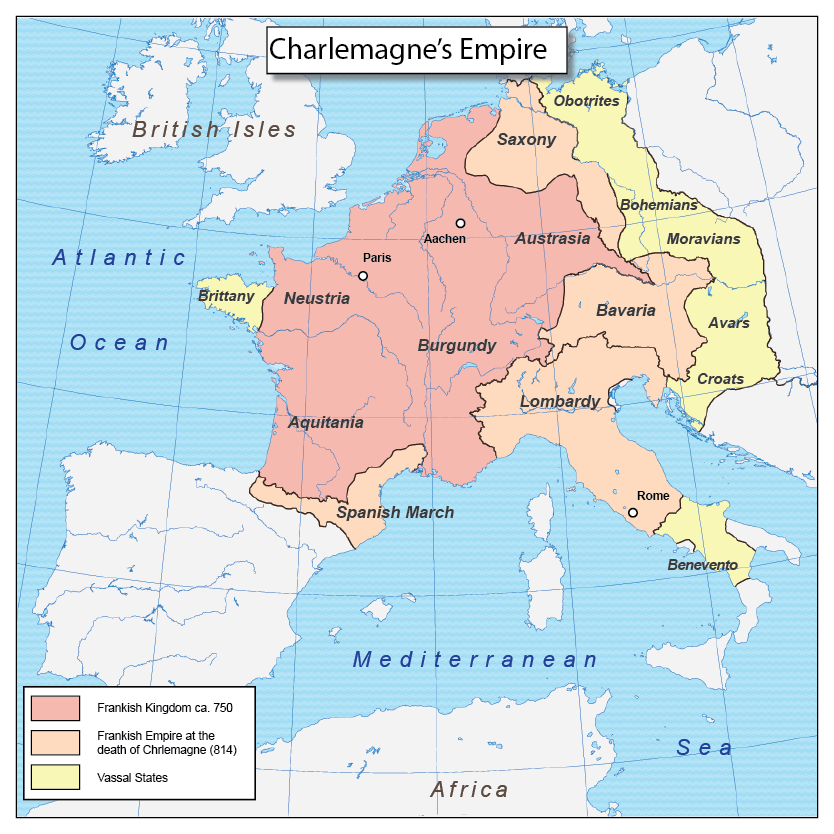Our Series on Empires takes us to Charlemagne's Empire, founded in 800ce.
The fall of the Roman Empire in the West in 476ce after a long period of decadence saw the emergence of Germanic kingdoms in Western Europe. The conversion of Clovis, a Frank King, to Christianity, followed by rapid success over his neighbours, consolidated a Frankish Kingdom in most of Western Europe.
Three centuries later, after a dynastic change, Charlemagne - Carolus Magnus or Charles the Great in Latin - greatly expanded the Kingdom toward the East, in the Northern European Plain, and the South, entering the Italian Peninsula. With the blessing of the Pope, Charlemagne was Crowned "Emperor of the Romans" in 800ce, a title that reclaimed the old Glory of the Roman Empire.
While its Western branch seceded in the 10th Century to give birth to the Kingdom of France, its Eastern part remained as an Empire until the year 1806. By then, it was a mostly German country, and it indirectly gave birth to the modern nation of Germany.
Charlemagne's Empire


